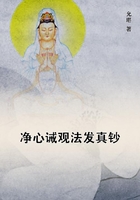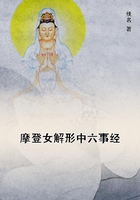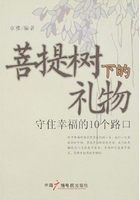Among us English-speaking peoples especially do the praises of poverty need once more to be boldly sung. We have grown literally afraid to be poor. We despise any one who elects to be poor in order to simplify and save his inner life. If he does not join the general scramble and pant with the money-making street, we deem him spiritless and lacking in ambition. We have lost the power even of imagining what the ancient idealization of poverty could have meant: the liberation from material attachments, the unbribed soul, the manlier indifference, the paying our way by what we are or do and not by what we have, the right to fling away our life at any moment irresponsibly--the more athletic trim, in short, the moral fighting shape. When we of the so-called better classes are scared as men were never scared in history at material ugliness and hardship; when we put off marriage until our house can be artistic, and quake at the thought of having a child without a bank-account and doomed to manual labor, it is time for thinking men to protest against so unmanly and irreligious a state of opinion.
It is true that so far as wealth gives time for ideal ends and exercise to ideal energies, wealth is better than poverty and ought to be chosen. But wealth does this in only a portion of the actual cases. Elsewhere the desire to gain wealth and the fear to lose it are our chief breeders of cowardice and propagators of corruption. There are thousands of conjunctures in which a wealth-bound man must be a slave, whilst a man for whom poverty has no terrors becomes a freeman. Think of the strength which personal indifference to poverty would give us if we were devoted to unpopular causes. We need no longer hold our tongues or fear to vote the revolutionary or reformatory ticket.
Our stocks might fall, our hopes of promotion vanish, our salaries stop, our club doors close in our faces; yet, while we lived, we would imperturbably bear witness to the spirit, and our example would help to set free our generation. The cause would need its funds, but we its servants would be potent in proportion as we personally were contented with our poverty.
I recommend this matter to your serious pondering, for it is certain that the prevalent fear of poverty among the educated classes is the worst moral disease from which our civilization suffers.
I have now said all that I can usefully say about the several fruits of religion as they are manifested in saintly lives, so I will make a brief review and pass to my more general conclusions.
Our question, you will remember, is as to whether religion stands approved by its fruits, as these are exhibited in the saintly type of character. Single attributes of saintliness may, it is true, be temperamental endowments, found in non-religious individuals. But the whole group of them forms a combination which, as such, is religious, for it seems to flow from the sense of the divine as from its psychological centre. Whoever possesses strongly this sense comes naturally to think that the smallest details of this world derive infinite significance from their relation to an unseen divine order. The thought of this order yields him a superior denomination of happiness, and a steadfastness of soul with which no other can compare. In social relations his serviceability is exemplary; he abounds in impulses to help. His help is inward as well as outward, for his sympathy reaches souls as well as bodies, and kindles unsuspected faculties therein. Instead of placing happiness where common men place it, in comfort, he places it in a higher kind of inner excitement, which converts discomforts into sources of cheer and annuls unhappiness. So he turns his back upon no duty, however thankless; and when we are in need of assistance, we can count upon the saint lending his hand with more certainty than we can count upon any other person. Finally, his humble-mindedness and his ascetic tendencies save him from the petty personal pretensions which so obstruct our ordinary social intercourse, and his purity gives us in him a clean man for a companion.
Felicity, purity, charity, patience, self-severity--these are splendid excellencies, and the saint of all men shows them in the completest possible measure.
But, as we saw, all these things together do not make saints infallible. When their intellectual outlook is narrow, they fall into all sorts of holy excesses, fanaticism or theopathic absorption, self-torment, prudery, scrupulosity, gullibility, and morbid inability to meet the world. By the very intensity of his fidelity to the paltry ideals with which an inferior intellect may inspire him, a saint can be even more objectionable and damnable than a superficial carnal man would be in the same situation. We must judge him not sentimentally only, and not in isolation, but using our own intellectual standards, placing him in his environment, and estimating his total function.
Now in the matter of intellectual standards, we must bear in mind that it is unfair, where we find narrowness of mind, always to impute it as a vice to the individual, for in religious and theological matters he probably absorbs his narrowness from his generation. Moreover, we must not confound the essentials of saintliness, which are those general passions of which I have spoken, with its accidents, which are the special determinations of these passions at any historical moment. In these determinations the saints will usually be loyal to the temporary idols of their tribe. Taking refuge in monasteries was as much an idol of the tribe in the middle ages, as bearing a hand in the world's work is to-day. Saint Francis or Saint Bernard, were they living to-day, would undoubtedly be leading consecrated lives of some sort, but quite as undoubtedly they would not lead them in retirement. Our animosity to special historic manifestations must not lead us to give away the saintly impulses in their essential nature to the tender mercies of inimical critics.















